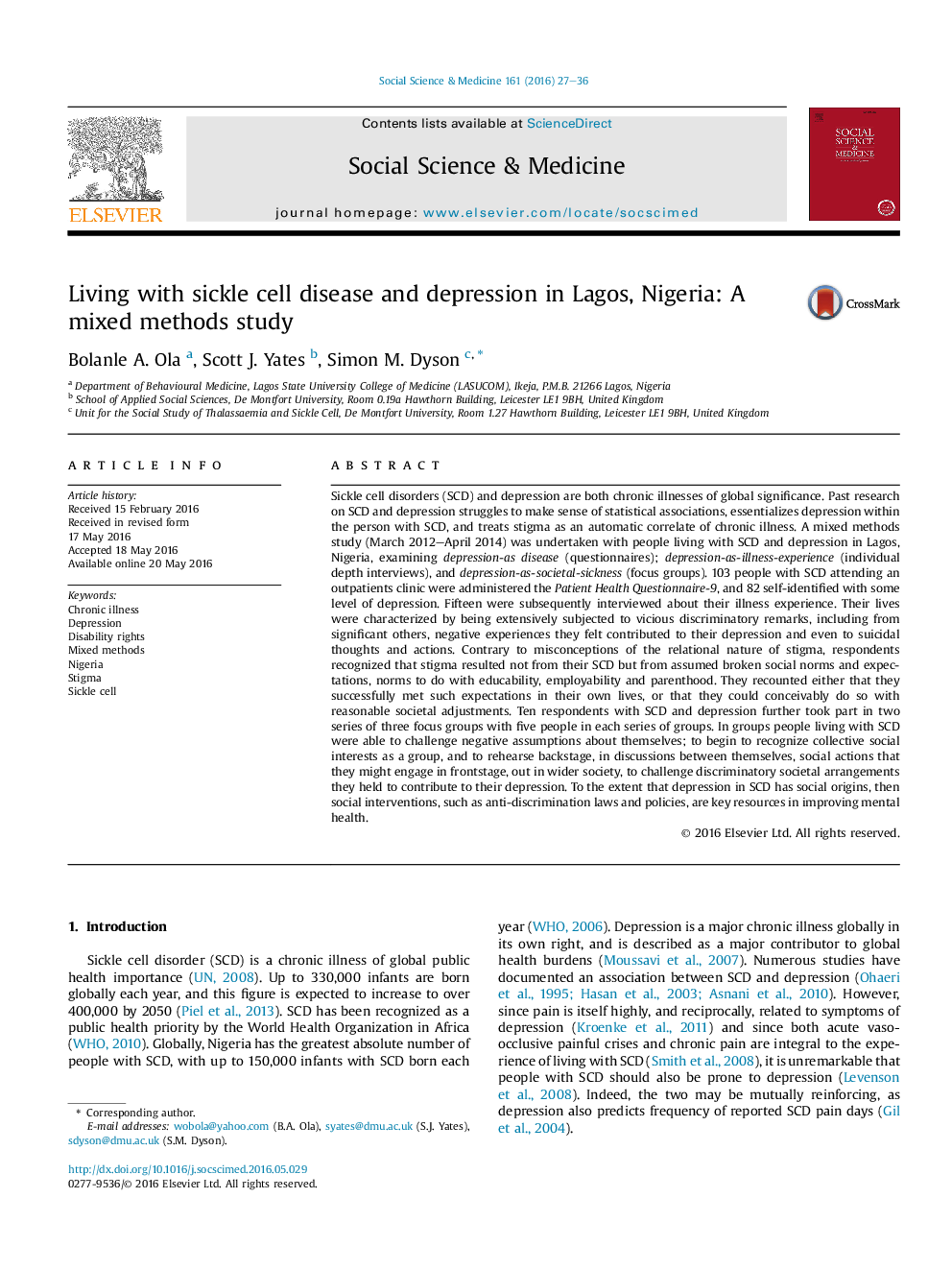| کد مقاله | کد نشریه | سال انتشار | مقاله انگلیسی | نسخه تمام متن |
|---|---|---|---|---|
| 7329794 | 1476008 | 2016 | 10 صفحه PDF | دانلود رایگان |
عنوان انگلیسی مقاله ISI
Living with sickle cell disease and depression in Lagos, Nigeria: A mixed methods study
ترجمه فارسی عنوان
زندگی با بیماری سلول داسی شکل و افسردگی در لاگوس، نیجریه: مطالعه روش ترکیبی
دانلود مقاله + سفارش ترجمه
دانلود مقاله ISI انگلیسی
رایگان برای ایرانیان
کلمات کلیدی
بیماری مزمن، افسردگی، حقوق معلولیت، روش های متفرقه، نیجریه، استقامت، سلول سقط،
موضوعات مرتبط
علوم پزشکی و سلامت
پزشکی و دندانپزشکی
سیاست های بهداشت و سلامت عمومی
چکیده انگلیسی
Sickle cell disorders (SCD) and depression are both chronic illnesses of global significance. Past research on SCD and depression struggles to make sense of statistical associations, essentializes depression within the person with SCD, and treats stigma as an automatic correlate of chronic illness. A mixed methods study (March 2012-April 2014) was undertaken with people living with SCD and depression in Lagos, Nigeria, examining depression-as disease (questionnaires); depression-as-illness-experience (individual depth interviews), and depression-as-societal-sickness (focus groups). 103 people with SCD attending an outpatients clinic were administered the Patient Health Questionnaire-9, and 82 self-identified with some level of depression. Fifteen were subsequently interviewed about their illness experience. Their lives were characterized by being extensively subjected to vicious discriminatory remarks, including from significant others, negative experiences they felt contributed to their depression and even to suicidal thoughts and actions. Contrary to misconceptions of the relational nature of stigma, respondents recognized that stigma resulted not from their SCD but from assumed broken social norms and expectations, norms to do with educability, employability and parenthood. They recounted either that they successfully met such expectations in their own lives, or that they could conceivably do so with reasonable societal adjustments. Ten respondents with SCD and depression further took part in two series of three focus groups with five people in each series of groups. In groups people living with SCD were able to challenge negative assumptions about themselves; to begin to recognize collective social interests as a group, and to rehearse backstage, in discussions between themselves, social actions that they might engage in frontstage, out in wider society, to challenge discriminatory societal arrangements they held to contribute to their depression. To the extent that depression in SCD has social origins, then social interventions, such as anti-discrimination laws and policies, are key resources in improving mental health.
ناشر
Database: Elsevier - ScienceDirect (ساینس دایرکت)
Journal: Social Science & Medicine - Volume 161, July 2016, Pages 27-36
Journal: Social Science & Medicine - Volume 161, July 2016, Pages 27-36
نویسندگان
Bolanle A. Ola, Scott J. Yates, Simon M. Dyson,
